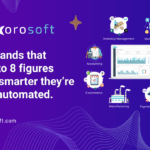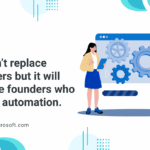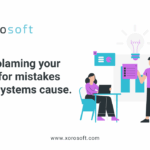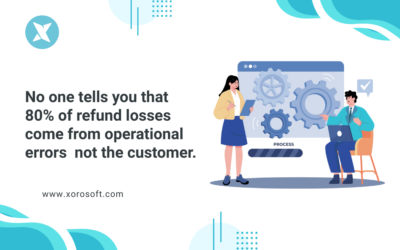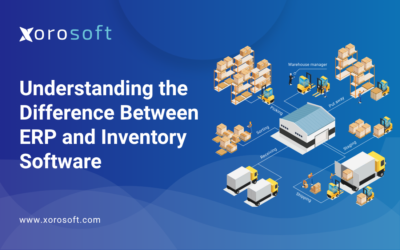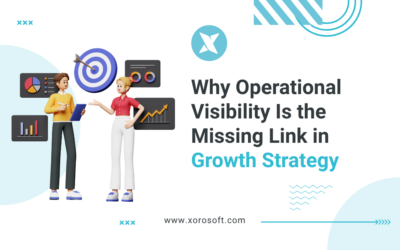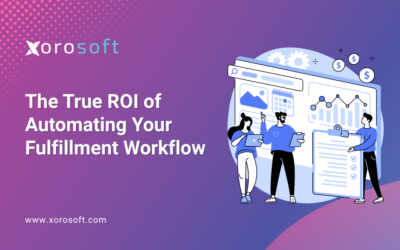
Introduction to ERP systems
Enterprise Resource Planning (ERP) systems have revolutionized the way businesses operate, providing a unified platform to manage various functions and streamline operations. In this comprehensive guide, we will delve into the world of ERP systems, exploring their benefits, different types, and how they can transform your business. Whether you are a small startup or a large corporation, understanding ERP systems is crucial for staying competitive in today’s fast-paced market.
Understanding the benefits of ERP systems
ERP systems offer a multitude of benefits that can greatly enhance your business operations. One of the key advantages is the integration of different business processes onto a single platform. This centralized approach allows for better communication and collaboration among departments, leading to improved efficiency and productivity. Additionally, ERP systems provide real-time data, enabling informed decision-making and enhancing customer service.
Another significant benefit of ERP systems is their ability to automate manual tasks. From inventory management to accounting, these systems automate repetitive processes, reducing errors and saving valuable time and resources. Moreover, ERP systems provide comprehensive data analysis and reporting capabilities, allowing businesses to gain valuable insights and make data-driven decisions.
Different types of ERP solutions
There are several types of ERP solutions available in the market, each catering to specific business needs. The most common types include:
-
On-Premises ERP: This type of ERP system is installed on servers within the organization’s premises. It offers complete control and customization but requires a dedicated IT team for maintenance and upgrades.
-
Cloud-based ERP: With cloud-based ERP systems, the software and data are hosted on remote servers and accessed through the internet. This type of ERP offers scalability, flexibility, and cost-effectiveness, as businesses only pay for the resources they use.
-
Industry-specific ERP: These ERP solutions are designed for specific industries such as manufacturing, healthcare, or retail. They come with industry-specific features and functionalities tailored to meet the unique requirements of each sector.
-
Open-source ERP: Open-source ERP systems provide flexibility and customization options as the source code is freely available. This allows businesses to modify the software according to their specific needs and preferences.
Exploring Xorosoft ERP: Features and capabilities
One notable ERP system in the market is Xorosoft ERP. With its robust features and capabilities, Xorosoft ERP offers businesses a comprehensive solution to manage their operations effectively. This ERP system comes with modules for finance, human resources, supply chain management, and more, providing a holistic approach to business management.
Xorosoft ERP offers real-time data visibility, allowing businesses to track their operations at any given moment. The system also integrates with other software applications, enabling seamless data flow between different departments. Furthermore, Xorosoft ERP provides advanced analytics and reporting tools, enabling businesses to gain actionable insights and make informed decisions.
The role of ERP systems in inventory management
Efficient inventory management is crucial for businesses to meet customer demands and maintain profitability. ERP systems play a vital role in streamlining inventory management processes. With features like automated stock tracking, demand forecasting, and order management, ERP systems ensure optimal inventory levels and prevent stockouts or overstocking.
Moreover, ERP systems provide real-time visibility into inventory data, allowing businesses to monitor stock levels, track shipments, and manage multiple warehouses efficiently. This real-time visibility ensures accurate inventory valuation, reduces carrying costs, and minimizes the risk of stock obsolescence.
Additionally, ERP systems enable businesses to integrate their inventory management with other key functions such as sales and accounting. This integration ensures data consistency and reduces manual efforts, resulting in streamlined processes and improved efficiency.
Streamlining accounting processes with ERP systems
Accurate and efficient financial management is essential for the success of any business. ERP systems offer robust accounting modules that streamline financial processes and provide comprehensive financial visibility. These modules automate tasks such as accounts payable/receivable, general ledger, and financial reporting, reducing manual errors and ensuring data accuracy.
Furthermore, ERP systems provide real-time financial data, allowing businesses to monitor cash flows, track expenses, and analyze financial performance. This real-time visibility enables timely decision-making and facilitates compliance with regulatory requirements.
Another significant advantage of ERP systems in accounting is the integration with other modules such as inventory management and sales. This integration ensures that financial data is updated in real-time, eliminating the need for manual data entry and reducing reconciliation efforts.
Choosing the right ERP system for your business
Selecting the right ERP system for your business is a crucial decision that requires careful consideration. Here are some key factors to keep in mind when choosing an ERP system:
-
Business requirements: Identify your business’s specific needs and objectives. Consider the functionalities and features that are essential for your operations.
-
Scalability: Ensure that the ERP system can accommodate your business’s future growth and expansion. Scalability is crucial to avoid the need for a system upgrade in the near future.
-
Integration capabilities: Assess the ERP system’s compatibility with existing software applications and its ability to integrate with external systems.
-
User-friendliness: A user-friendly interface is essential for easy adoption and seamless navigation. Look for an ERP system that offers intuitive features and requires minimal training.
-
Vendor reputation: Research the vendor’s reputation, customer reviews, and support services. Choosing a reliable vendor is crucial for ongoing support and system maintenance.
Implementing an ERP system: Best practices and challenges
Implementing an ERP system can be a complex process with its own set of challenges. However, following best practices can help ensure a successful implementation. Some key best practices include:
-
Thorough planning: Define clear goals, establish a project team, and create a detailed implementation plan. Consider the potential risks and develop mitigation strategies.
-
Data migration and cleansing: Cleanse and validate your data before migrating it to the new ERP system. This ensures data accuracy and prevents any issues during the implementation process.
-
User training and change management: Invest in comprehensive training programs to familiarize users with the new ERP system. Additionally, implement change management strategies to address resistance and ensure smooth adoption.
-
Testing and quality assurance: Conduct thorough testing of the ERP system before going live. This includes functional testing, integration testing, and performance testing to identify and rectify any issues.
Despite the best practices, implementing an ERP system can pose challenges. Some common challenges include resistance to change, lack of user buy-in, and data migration issues. However, with proper planning, effective communication, and stakeholder involvement, these challenges can be overcome.
The future of ERP systems: Emerging trends and advancements
As technology continues to evolve, ERP systems are also witnessing significant advancements. Here are some emerging trends that are shaping the future of ERP systems:
-
Artificial Intelligence (AI) and Machine Learning (ML): AI and ML are being integrated into ERP systems to automate tasks, improve data analysis, and enhance decision-making.
-
Internet of Things (IoT): IoT devices are increasingly being connected to ERP systems, allowing real-time monitoring and data collection. This integration enables predictive maintenance, improved supply chain management, and enhanced customer service.
-
Mobile ERP: With the proliferation of mobile devices, ERP systems are becoming more accessible through mobile applications. Mobile ERP enables remote access, enhances collaboration, and provides real-time data on the go.
-
Blockchain integration: Blockchain technology is being integrated into ERP systems to enhance data security, improve transparency, and streamline supply chain processes.
These emerging trends indicate a promising future for ERP systems, offering businesses enhanced capabilities and improved efficiency.
Conclusion: Harnessing the power of ERP systems with Xorosoft
In conclusion, ERP systems have become a vital tool for businesses of all sizes, providing a unified platform to streamline operations and improve efficiency. The benefits of ERP systems, such as integration, automation, and real-time data visibility, are indispensable in today’s competitive market.
When choosing an ERP system, consider your business requirements, scalability, integration capabilities, user-friendliness, and vendor reputation. Implementing an ERP system requires thorough planning, data migration, user training, and testing. Overcoming challenges such as resistance to change and data migration issues is crucial for a successful implementation.
Looking ahead, emerging trends such as AI and ML, IoT integration, mobile ERP, and blockchain indicate a promising future for ERP systems. As businesses strive for growth and efficiency, harnessing the power of ERP systems will be key.
Book a Demo with Xorosoft and unlock the full potential of your business with their comprehensive ERP solution.
